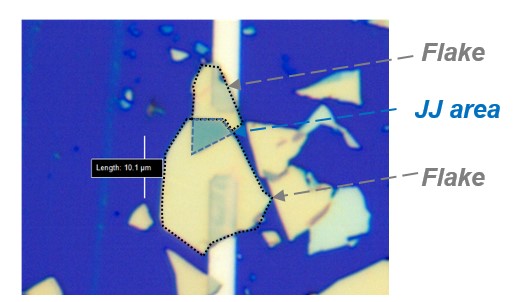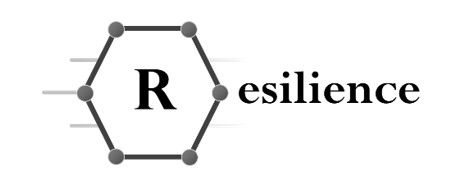RESILIENCE
(Magnetic field resilient microwave single photon detector based on van der Waals Josephson junctions)
RESILIENCE is a newly founded project that aims to use NbSe2 to fabricate magnetic field (MF) resilient Josephson junctions (JJ) to use as a microwave single photon detector.
JJ are the fundamental building block of circuit Quantum Electrodynamic (QED). Their functionalization through the choice of emergent materials is pivotal to fabricating devices with novel properties. In this context, van der Waals (vdW) materials emerge as an ideal candidate. They can be exfoliated down to monolayer and vdW heterostructures can be used to fabricate JJ with unprecedented precision.
In addition, the properties of the vdW materials are inherited by the JJ. NbSe2 exhibits unusual MF resistance due to the presence of Ising superconductivity. Few layers of NbSe2 retain its superconductive behaviour with an applied MF up to 30 T. JJ fabricated using NbSe2 as superconductive material have been tested to be MF resilient up to 8.5 T. However, the optimization of NbSe2 JJ fabrication parameters (e.g. insulating barrier thickness, NbSe2 thickness, JJ surface, etc.) in relation to its MF resiliency performance is completely lacking in the literature.
The implementation of a microwave single photon detector resistant to a high magnetic field will help to improve the sensitivity of dark matter experiments like the search for axion (possible dark matter candidate).
RESILIENCE is a project funded by the INFN CSN5 young researcher grant 2022 and is a collaboration between INFN, University of Camerino, and IFN-CNR.


